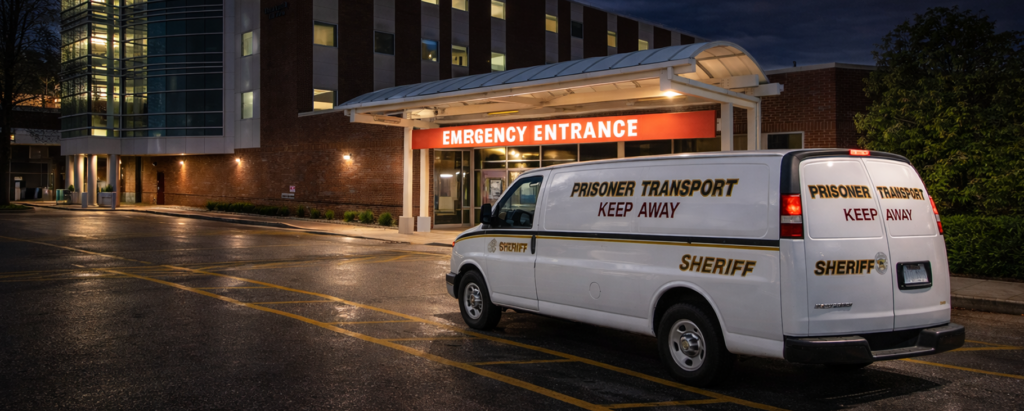Pena v. City Of Los Angeles, 2025 WL 3074588 (9th Cir. 2025)
Carlos Pena was building the American dream, running a print shop he had started 12 years earlier in Los Angeles. When he heard a commotion outside, Pena opened the back door and looked out. An armed fugitive fleeing U.S. marshals hit Pena with a metal bar and pushed his way into Pena’s shop. The fugitive forced Pena outside at gunpoint.
The fugitive barricaded himself inside, beginning a 13-hour standoff with Los Angeles Police Department SWAT and U.S. marshals. LAPD SWAT officers fired dozens of tear gas canisters through the walls, door, roof, and windows. The damages exceeded $60,000 and were caused exclusively by the police. Pena filed a claim with the U.S. Marshals Service. The Marshals Service denied the claim, referring Pena to the LAPD. When the city did not respond to his claims, he sued under 42 U.S.C. § 1983.
“The important takeaway from the Pena decision is the threshold question of whether the officers’ actions were ‘in the necessary and reasonable defense of public safety.’”
The Fifth Amendment’s takings clause provides: “Nor shall private property be taken for public use, without just compensation.” The City of Los Angeles asserted the takings clause does not require compensation for property destroyed by police acting reasonably in an emergency. The trial court agreed and granted summary judgment for the city. Pena appealed.
After discussing some colonial-era laws expressly disallowing compensation when the state seized privately owned property, the Magna Carta, and the writings of Thomas Jefferson and James Madison, the appellate court held that police destruction of private property, when necessary and reasonable for public safety, is exempt from the constitutional takings clause. This issue was new to the 9th Circuit Court of Appeals.
Currently, there are four circuit courts of appeals (4th, 5th, 6th, and federal circuits) that hold there is no police-power exception to the takings clause. We considered a similar case in last month’s issue of Xiphos, Hadley v. City of South Bend (2025 WL 2837973 (7th Cir. (2025)), with a similar outcome, but a slightly different analytical approach. The 3rd and 10th circuits have found some police-power exception to the takings clause. The 9th Circuit’s Pena decision is yet another entry in the conflict among the nation’s federal courts, making it even more likely that the issue of whether damage to innocent parties’ property resulting from police action is compensable will be considered by the United States Supreme Court.
Timely legal analysis on law enforcement-related cases: SUBSCRIBE NOW!
The important takeaway from the Pena decision is the threshold question of whether the officers’ actions were “in the necessary and reasonable defense of public safety.” The near-complete destruction of a business Pena had built over a dozen years, including struggling through his bout with COVID-19, is a truly tragic outcome. Even so, he had the grace to acknowledge what the officers did was reasonable and necessary to catch a dangerous fugitive.
The horrible irony is that despite the substantial ground and air presence of LAPD officers and deputy U.S. marshals, the fugitive escaped. Just two weeks later, he repeated his barricade trick. He escaped arrest once again, this time by suicide.
- Webinars



